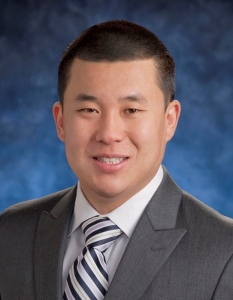By Tyree Dorward and Kevin Wang, Best Best & Krieger.
The California Legislature imposed a new registration requirement for contractors and subcontractors involved in public works projects. Senate Bill 854, passed in June, created a registration program, which went into effect on July 1, to fund the Department of Industrial Relations’ monitoring and enforcement of prevailing wage laws.
The registration period is open now, and contractors and subcontractors wishing to work on a public works project must be registered by March 1, 2015. For public agencies/awarding bodies, the new law requires that all public works projects with bids submitted after March 1, 2015, or awarded on or after April 1, 2015, use only registered contractors and subcontractors. The bill also requires public agencies to include notice of the registration requirement in their bid invitations and bid documents.
Public agencies must additionally file notice of their public works projects with DIR using DIR form PWC-100 (contract award notice) for all public works projects. This requirement previously applied to about 90 percent of all projects.
Contractor and subcontractor registration is completed through an online application and requires a non-refundable $300 fee to be paid by the contractors and subcontractors. Contractors must pay an annual renewal fee by July 1 of each year. The registration form is located on the DIR’s website.
The registration process requires contractors to:
- Provide workers’ compensation coverage to employees;
- Hold a valid Contractors State License Board license if required for their trade;
- Have no delinquent unpaid wage or penalty assessments;
- Not be subject to federal or state debarment; and
- Have no prior violation of the registration requirement once it becomes effective (First-time violators can avoid a 12-month disqualification by paying a penalty).
Once registration becomes mandatory early next year, contractors will also be subject to penalties for bidding or working on public works without being registered with DIR. However, contractors will not be in violation for working on a private job that is later determined to be public work.
Contractors and subcontractors on all public works projects will be required to submit certified payroll records to the Labor Commissioner unless excused from this requirement, which will be phased in, according to the DIR, as follows:
- Will apply immediately to projects that have already been under CMU monitoring
- Will apply to new projects awarded on or after April 1, 2015
- May apply to other projects as determined by the Labor Commissioner
- Will apply to all projects, new or ongoing, on and after Jan. 1, 2016
The Labor Commissioner may make exception to this requirement for:
- Project covered by qualifying project labor agreement
- Projects undertaken by one of four remaining awarding bodies with legacy Labor Compliance Programs, so long as those LCPs remain approved by DIR. These LCPs include the California Department of Transportation, City of Los Angeles, County of Sacramento and Los Angeles Unified School District.
Public agencies can replace an unregistered contractor or subcontractor with one who is registered, but contracts with unregistered contractors or subcontractors are not void as pertaining to past work. Also, receiving a bid with an inadvertent listing of an unregistered contractor or subcontractors will not necessarily invalidate that bid, especially since a contractor whose registration has lapsed has a grace period within which to become current.
To help awarding bodies and contractors comply with the new requirements, the DIR will post a database of registered contractors and subcontractors on its website.
The new registration system, based upon models in place in New Mexico and New Jersey, replaces the previous requirement that awarding bodies pay for costs to monitor and enforce compliance with prevailing wage laws for certain public works projects. Registration and renewal fees will go into the State Public Works Enforcement Fund, which provides for the administration of contractor registration, monitoring and enforcement of prevailing wage laws and the enforcement of Labor Code violations on public works projects by the DIR.
Previously, these activities were funded through billing awarding bodies for services provided on Compliance Monitoring Unit projects, a portion of the Labor Enforcement and Compliance Fund assessment charged to all California employers, the general fund and a handful of other sources.
The new program will cover all public works projects in the state rather than just selected categories of projects. The Labor Commissioner’s Office will continue to monitor and enforce prevailing wage requirements.
[divider] [/divider]
 Tyree K. Dorward is a partner in Best Best & Krieger LLP’s San Diego office. Mr. Dorward’s practice focuses primarily on school business and facilities issues, public works purchasing, bidding, construction and environmental issues. He is chair of the firm’s Education Law Practice Group and a member of the Environmental Law & Natural Resources Practice Group. He can be reached at tyree.dorward@bbklaw.com.
Tyree K. Dorward is a partner in Best Best & Krieger LLP’s San Diego office. Mr. Dorward’s practice focuses primarily on school business and facilities issues, public works purchasing, bidding, construction and environmental issues. He is chair of the firm’s Education Law Practice Group and a member of the Environmental Law & Natural Resources Practice Group. He can be reached at tyree.dorward@bbklaw.com.
 Kevin Wang is an associate in the Municipal Law Practice Group of Best Best & Krieger LLP’s Sacramento office. His practice concentrates on municipal and public entity representation with an emphasis in public works purchasing, bidding and construction issues. He can be reached at kevin.wang@bbklaw.com.
Kevin Wang is an associate in the Municipal Law Practice Group of Best Best & Krieger LLP’s Sacramento office. His practice concentrates on municipal and public entity representation with an emphasis in public works purchasing, bidding and construction issues. He can be reached at kevin.wang@bbklaw.com.




